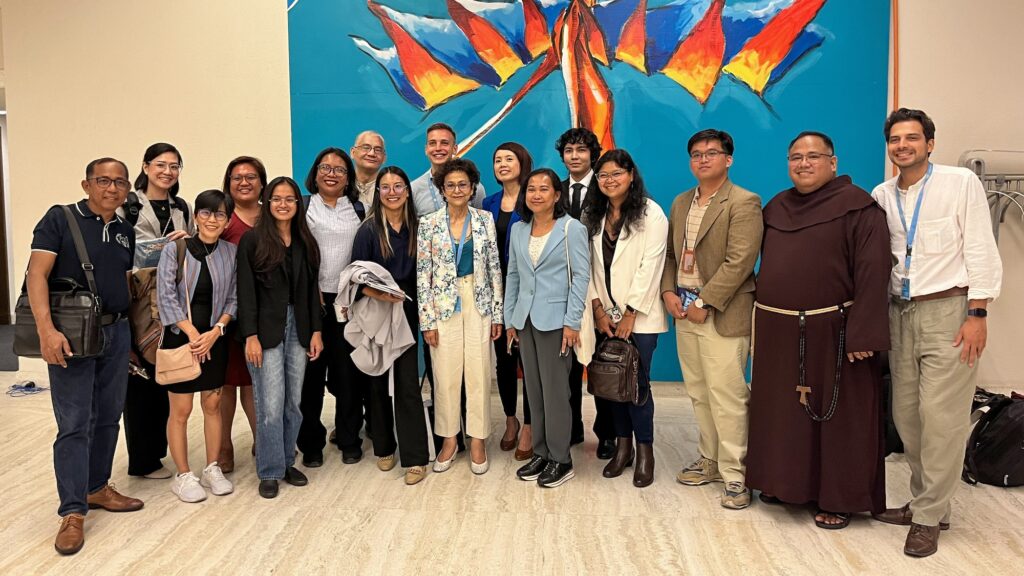Despite being home to a vibrant civil society comprising more than 60.000 organizations, human rights defenders (HRDs) in the Philippines who are critical of the government or push for accountability for grave violations, continue to face harassment and attacks. Between July 2016 and March 2024, 305 journalists and HRDs were killed. With only one known conviction to date, a climate of impunity fuels the risks they face.
Following her country visit in February 2024, UN Special Rapporteur on the right to freedom of opinion and expression Ms. Irene Khan warned that while the new administration of President Marcos has shown positive signs on improving the country’s human rights record, these are insufficient to turn the page on the past. Her findings were echoed in a written statement submitted to the Human Rights Council by Franciscans International, which identified ‘red-tagging’ as one of the most pervasive and dangerous practices in the Philippines.
Red-tagging – accusing a victim of links with communist rebels or terrorist groups – is widespread and, despite a ruling by the Supreme Court that it threatens the right to life, is practiced routinely by government officials. One of the numerous victims of this practice is Angelito Cortez OFM, a Friar Minor from Manila.
During the so-called ‘war on drugs’ waged by the previous administration, Brother Angelito took on a leading role in the church’s efforts to denounce the rampant extrajudicial killings that rocked the country. Together with other Franciscan sisters and brothers, he provided pastoral support and sanctuary to some of the families of the more than 26.000 victims. During the 59th session of the Human Rights Council, he joined Ms. Khan during a side event to share the consequences of his work.
“I received multiple death threats — clear, direct, and coordinated. One message warned: ‘We were ordered to have you killed. Four of us are already deployed in Manila. But when we found out you are a priest, we paused. We don’t want your family hurt.’ They knew where I lived. They tracked my movements. They monitored my family. And I believed them,” said Brother Angel. “Because of this terror, I had no choice but to voluntarily exile myself to an undisclosed country.”
Although Brother Angelito was eventually able to return to Manila, the wider threat persists and is even expanding. Red-tagging has moved into online spaces, where doxing and harassment can escalate into violence in offline spaces. The result has been a chilling effect that drives some HRDs to self-censor or stop their activism altogether. Land and environmental defenders are at particular risk, including those working with Franciscans to protect the Verde Island Passage from new energy infrastructure or those who oppose the Manila Bay Reclamation project.
“The previous administration has set the bar so low that many would say anything that comes after must be better and therefore more acceptable,” said Ms. Khan during the side event. But among the people in the Philippines, especially activists at the frontlines, they tell you it’s not better, precisely because of the embedded and institutionalized impunity.”
In its statement, FI made several recommendations to bring an end to red-tagging. These include making the practice a criminal offence, instituting appeal processes for organizations that have been red-tagged, and immediately abolishing the National Task Force to end Local Communist Armed Conflict – an agency that has been at the forefront of red-tagging HRDs since its creation in 2018. FI also supported calls by Ms. Khan has on the government to issue an executive order denouncing the practice.
“Make no mistake: red-tagging is not a harmless label. It is a death sentence. It gives a green light to surveillance, harassment, arbitrary arrests, and extrajudicial killings,” warned Brother Angelito. “It is a direct assault on the right to dissent and the right to speak freely — the very essence of freedom of expression.”

